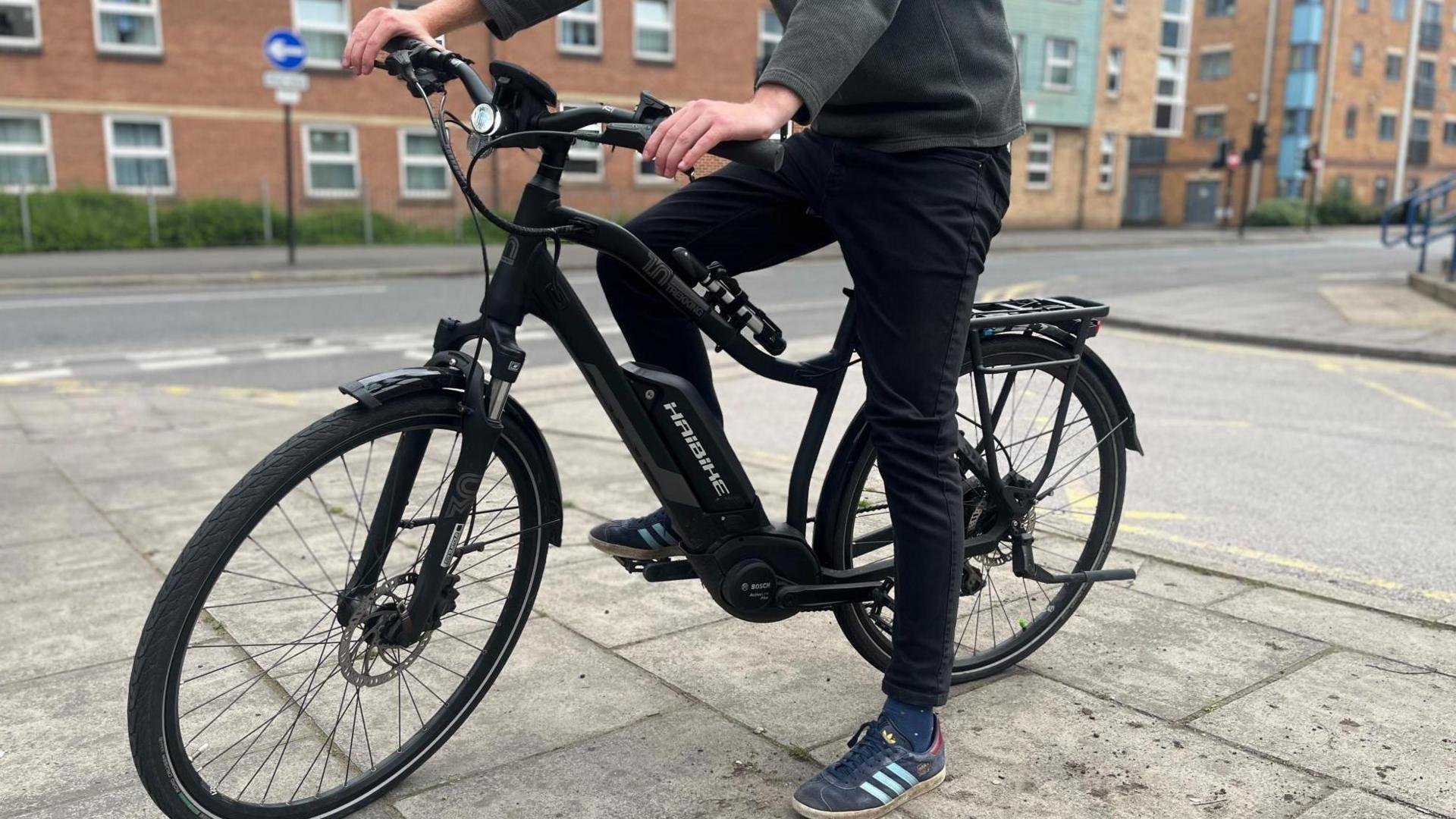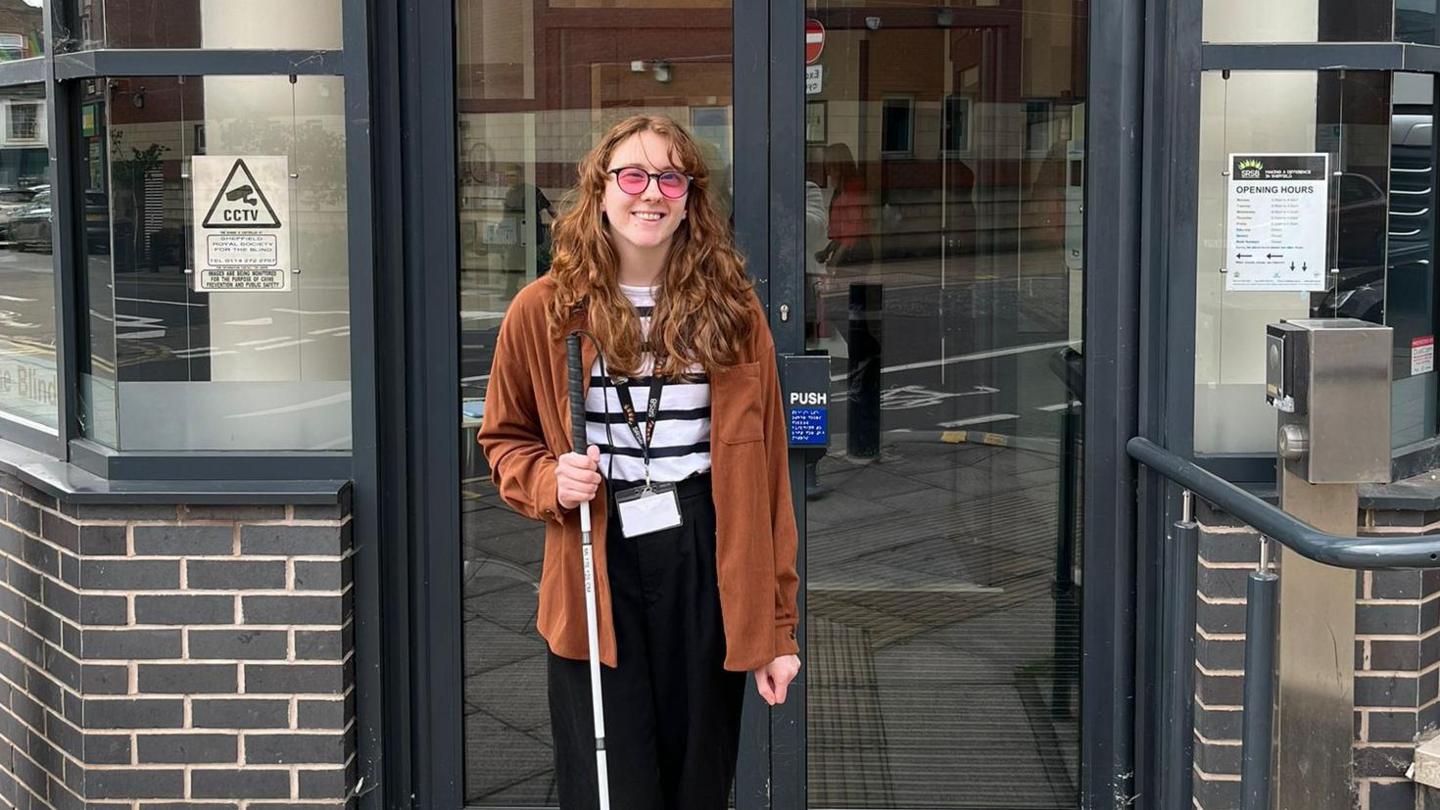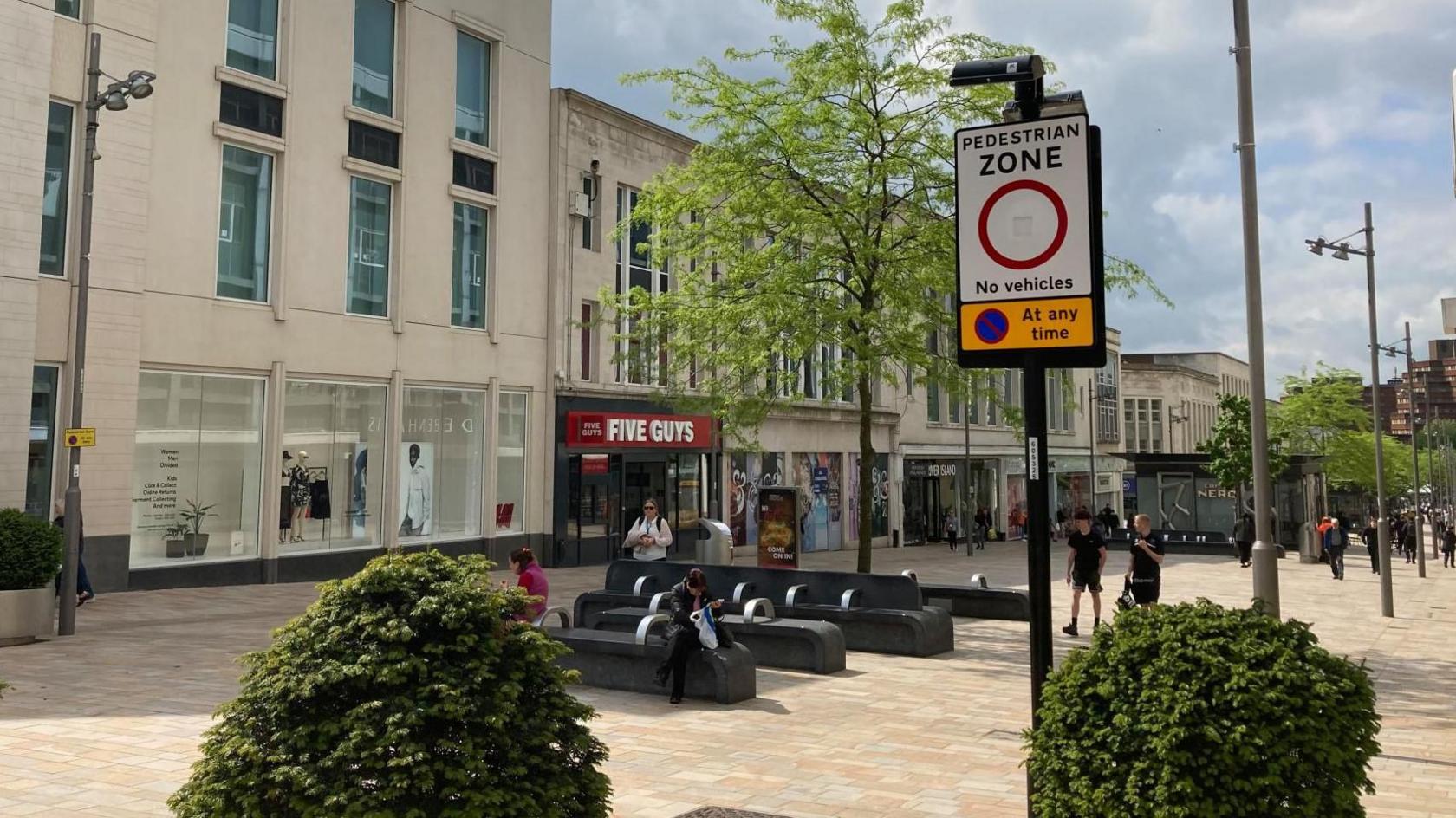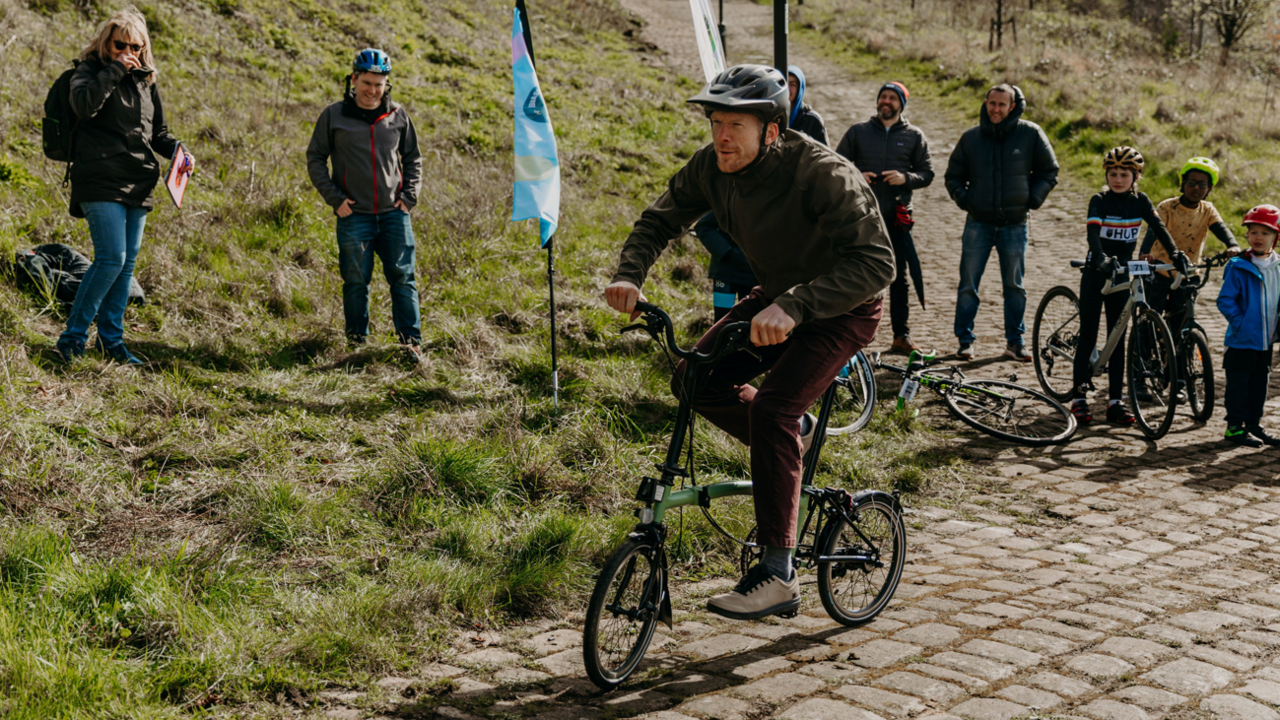Illegal users of speeding e-bikes 'scaring' people

E-bikes must not travel at more than 15.5mph
- Published
A visually impaired commuter from Sheffield has said she feels at constant risk during her daily walk to work because of the danger posed by e-bikes.
Chloe Firth, 24, is registered blind and said that despite many streets in the city centre being pedestrianised, some cyclists ignore the restrictions.
She said she is particularly vulnerable around e-bikes because, despite their potential speed, they are virtually silent.
A council spokesperson said while the city had the "potential to be the e-bike capital of the UK", it was working with police to crack down on illegal use.
Anyone over the age of 14 can ride an e-bike without needing a licence, but by law the motor must have a maximum power output of 250W.
The maximum speed to which the motor is allowed to propel the e-bike is 15.5mph (25km/h) and it must also have pedals to be classed as a bicycle rather than a motorcycle.
Ms Firth was diagnosed as partially sighted at the age of five but her vision has deteriorated in recent years.
She has corneal decompensation, which she describes as "extreme double vision", and nystagmus, an involuntary shaking of the eye.
On her commute to work, Ms Firth said she walks down the Moor in the city centre, and often feels "scared" when passed by fast e-bike users.
She told the BBC: "They whip in and out between crowds which is fine when you can see people coming, but I can’t see anything at all on my right side and only when they are very close on my left. I can’t move out of the way of the danger fast enough."
Ms Firth said another hazard faced by the visually impaired was "pavement clutter", when delivery drivers leave their bikes in the centre of the pavement while dropping off food.
She said: "I have managed to get my cane stuck in between the wheels of the bike. Other friends of mine have even fallen over parked bikes."

Chloe Firth says she feels anxious about e-bikes speeding past her on her way to work
Chloe's concerns are shared by the Sheffield Royal Society for the Blind.
Chief executive Joanne Ardern said: "We have noticed e-bikes weaving in and out of pedestrians on pavements and in pedestrian areas, sometimes without lights on in the dark too.
"We realise that people and organisations do not deliberately set out to cause problems for our clients, but many of us who are lucky enough to have good sight or mobility may take it for granted and just don’t think about consequences for others."
Cycling UK's senior policy officer Monica Scigliano, who lives in Sheffield, said a distinction needed to be made between the different types of e-bike, with many of the concerns being around illegal bikes that are "too powerful".
She said: "We do not condone this sort of behaviour; cyclists have to take responsibility to watch out for pedestrians.
"We have to remember that some of these vehicles which pedestrians are worried about are being ridden without pedals faster than 15.5mph. These are motorbikes and we should start calling them that."

The Moor in Sheffield is one of a number of city centre areas that is fully pedestrianised
Councillor Ben Miskell, chair of transport, regeneration and climate at Sheffield City Council, said: "We want streets to feel safe and welcoming for everyone and we’re transforming the city centre to make it a place that everyone can feel proud of.
"Sheffield is a city built on seven hills and has the potential to be the e-bike capital of the UK.
"However, e-bikes that have been modified to assist a cyclist above 15.5mph are illegal and are causing problems in towns and cities across the UK.
"We are determined to work with South Yorkshire Police and food delivery companies to tackle the problem."
Follow BBC Yorkshire on Facebook, external, X (formerly Twitter), external and Instagram, external. Send your story ideas to yorkslincs.news@bbc.co.uk.
- Published29 April 2024

- Published31 March 2024
